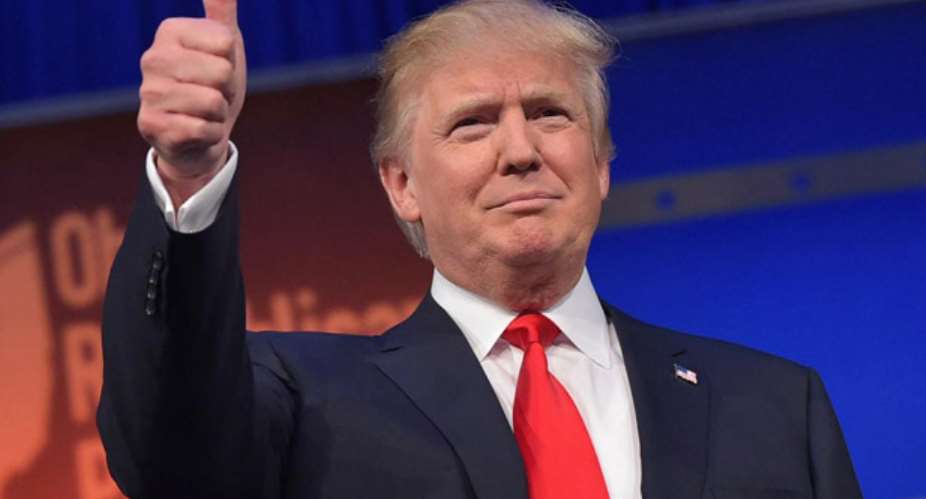Donald Trump's stress test of American democracy is expanding. We can now add to the list of tested norms and principles—on top of the rule of law, the sanctity of the vote and the peaceful transfer of power—the state’s monopoly on the use of force.
At a Texas rally last week, Trump threatened the government prosecutors investigating him and his business. “If these radical, vicious, racist prosecutors do anything wrong or corrupt,” he said, “we are going to have in this country the biggest protests we have ever had.”
In response, the Fulton County, Georgia District Attorney—who is investigating Trump for pressuring Georgia officials to commit election fraud—asked the local FBI for physical protection.
Trump is thus actively organizing an alternative to state power—a large, violent mob erected to thwart and reverse the legitimate workings of government.
Sound familiar? Apparently Trump's January 6 mob was just the beginning.
As famed political theorist Max Weber explained more than a century ago, a “government is an institution that holds a monopoly on the legitimate use of violence.” More recently, Princeton political scientist Ezra Suleiman wrote in his 2013 book, Dismantling Democratic States, that when a government loses its monopoly on force, it stops being a state and “its form of organization becomes indistinguishable from other types of organization.”
And as Joshua Horwitz and Casey Anderson put it in their book Guns, Democracy, and the Insurrectionist Idea, a “state must be able to enforce its judicial or administrative rulings: if it is outgunned by individuals or factions, it is not functioning as a democratic state (in fact, it is not functioning as a state at all) and is reverting to a pregovernmental society where might makes right and political equality is at best an abstract ideal.”
Trump is mobilizing a violent faction to outgun government prosecutors. And it might just work. Prosecutors have vast discretion to decide whether or not to bring a case, and the fear of violent protests could be the difference between pursuing Trump and declining to prosecute.
If there are large and violent protests in response to a Trump prosecution, however, the United States military must be on high alert. The amount of civil unrest could be unprecedented.
And this highlights yet another bedrock principle of American democracy: civilian control over the military. As the New York Times editorial board wrote shortly before his inauguration, “Joe Biden ran for the White House promising to restore the norms that protect American democracy, which had badly eroded under President Trump. Among the most worrisome is the erosion of the principle that the military should be led by a civilian and those in uniform kept separate from partisan politics.”
Indeed, as the American polity grows more unstable the need for civilian leaders to secure control over the military increases proportionally. No organization in human history has more raw power than the United States military and it must stay walled off from political dysfunction at all costs.
In a disturbing and ironic historical twist, a man with little understanding of civics, Donald Trump, is giving us all a basic lesson in the essential principles of American government—principles that have guided this country for centuries and which are now undergoing an unprecedented stress test.





 We’ll no longer tolerate your empty, unwarranted attacks – TUC blasts Prof Adei
We’ll no longer tolerate your empty, unwarranted attacks – TUC blasts Prof Adei
 Bawumia donates GHc200,000 to support Madina fire victims
Bawumia donates GHc200,000 to support Madina fire victims
 IMF to disburse US$360million third tranche to Ghana without creditors MoU
IMF to disburse US$360million third tranche to Ghana without creditors MoU
 Truck owner share insights into train collision incident
Truck owner share insights into train collision incident
 Paramount chief of Bassare Traditional Area passes on
Paramount chief of Bassare Traditional Area passes on
 Two teachers in court over alleged illegal possession of BECE papers
Two teachers in court over alleged illegal possession of BECE papers
 Sunyani: Victim allegedly shot by traditional warriors appeals for justice
Sunyani: Victim allegedly shot by traditional warriors appeals for justice
 Mahama vows to scrap teacher licensure exams, review Free SHS policy
Mahama vows to scrap teacher licensure exams, review Free SHS policy
 Government will replace burnt Madina shops with a new three-story, 120-store fac...
Government will replace burnt Madina shops with a new three-story, 120-store fac...
